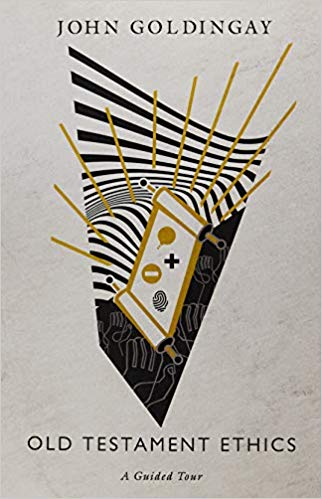A Book Review from Books at a Glance
by Wei-Yen Lai
Over the past decades, ethical inquiries have been examined predominantly through a philosophical lens such as moral realism, ethical naturalism, and normative ethical theories. Though these theories are useful in enabling one to consider an ethical problem through various perspectives, none of them can sufficiently guide Christians in examining the ethical problems through a biblical-theological perspective. As such, this presents a critical need for books that focus on the examination of ethical issues based on Scripture.
One such book is Old Testament Ethics: A Guided Tour, which seeks to provide a biblical-theological understanding of ethical issues concerning wealth, violence, justice, marriage and migrants. The author of the book, John Goldingay, a professor of Old Testament at Fuller Theological Seminary, has written numerous books on Old Testament theology and the seventeen-volume series Old Testament for Everyone. Furthermore, Goldingay is also the DD, Archbishop of Canterbury at Lambeth, actively ministering to and engaging with the issues faced by everyday Christians. The combination of Old Testament scholarship and pastoral experience not only allows Goldingay to exegete Scripture profoundly but also enables him to astutely discern the critical ethical issues of the present day.
In the Introduction, Goldingay highlights a two-fold focus of the book. First, is the importance of Scripture in engaging ethical issues. Through the words of Apostle Paul, Goldingay demonstrates that if one wants to know what is right and desires to walk according to the Spirit, he/she would need to know what the Torah and the Prophets say. Second, the main focus of ethics is not merely how we should approach specific tricky issues, but also how believers are to walk the talk and live out their day-to-day lives accordingly.
The book is categorized into five key parts:
- Qualities
- Aspects of life
- Relationships
- Texts
- People
Each section is then subsequently divided in numerous short chapters, approximately five pages each, and comprises of the author’s translation of part of the biblical text, pastoral experiences and contemporary reflections. At the end of each chapter, there are discussion questions – a notable strength of the book – enabling readers to ponder their own life and walk with God.
The first section, “Qualities,” addresses the qualities of an individual believer as well as the faith community. It speaks of qualities such as faithfulness, compassion, contentment, anger and pride. In other words, the underlying question that one is to consider is “what sort of people are we?”
The second section, “Aspects of Life,” delineates the Old Testament teachings on key aspects or areas of life such as work, the environment, wealth, and violence. It challenges the reader to ruminates how he/she thinks about these areas in life and how the Old Testament’s principles should be applied.
The third section looks at the Old Testament’s teaching about “Relationships,” such as those between parents and children, spouses, neighbors, and nations.
The fourth section, “Texts,” highlights key biblical chapters from the Old Testament (e.g. Genesis, Leviticus, and Psalms) that focus on ethical matters.
Lastly, the fifth section, “People,” speaks of the lives of biblical characters (e.g. Abraham, the midwives that delivered Moses, and David) that open up challenging ethical questions.
Throughout the book, one may find a single ethical topic being mentioned in several different chapters. For instance, the issue of violence is mentioned in chapters on “Trust,” “Violence,” “Deuteronomy 20,” and “Postscript.” This is probably because the intention of the author is not to approach ethics by merely examining specific topics or issues but to highlight the importance of spiritual formation – exemplifying the fruit of the Spirit – in the lives of Christians.
In a nutshell, the book is a useful beginners’ guide for Christians who are starting to explore and consider how the Old Testament looks at ethical issues in this day and age. For pastors and theological students, it can also be a helpful companion volume – giving useful quick references – for further in-depth studies.
Wei-Yen Lai has a ThM in Systematic Theology (with a special concentration in Christian ethics) from Trinity Evangelical Divinity School in Deerfield, Illinois. She will graduate with an MA in Bioethics from TEDS in December, 2019.
